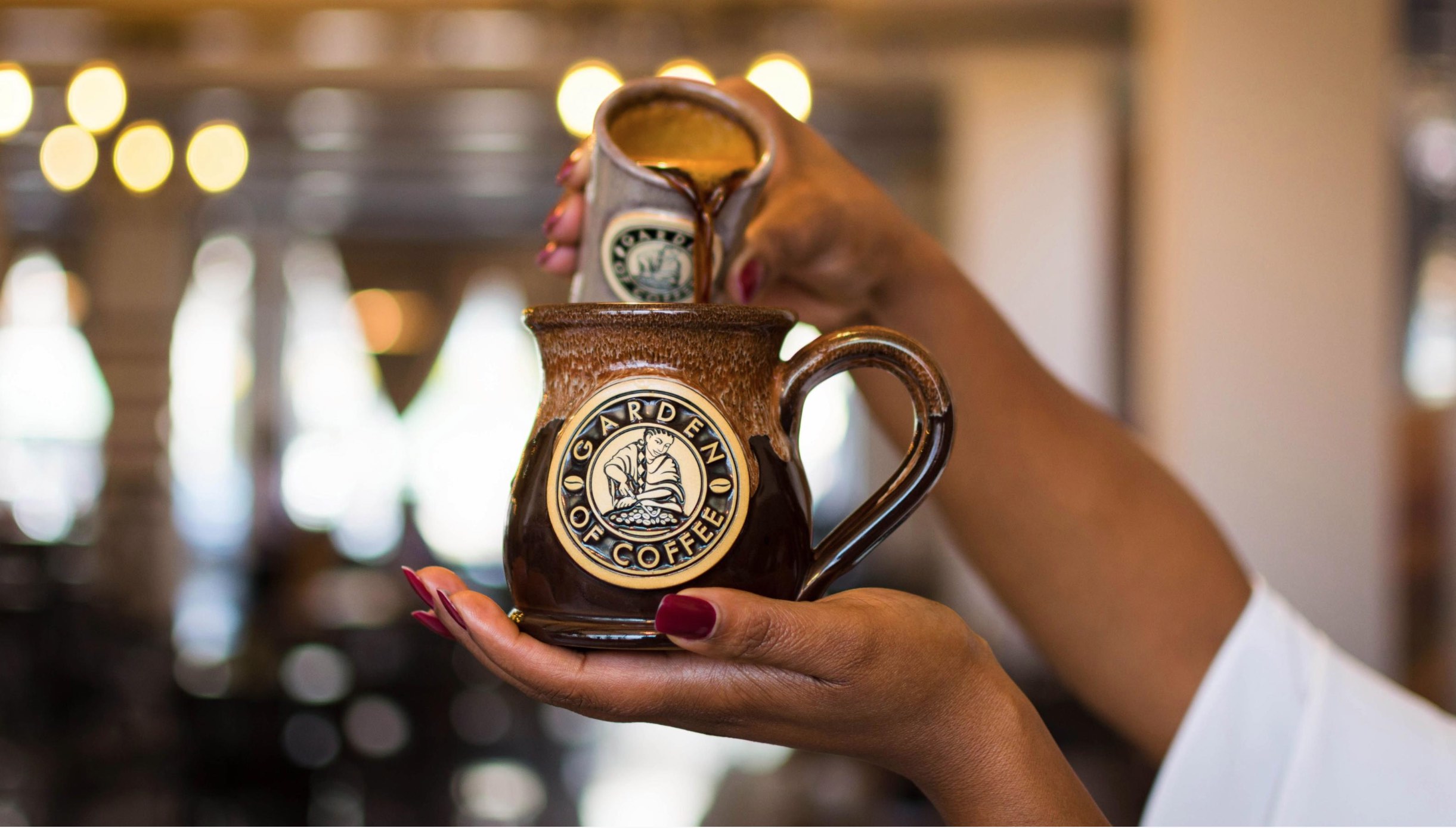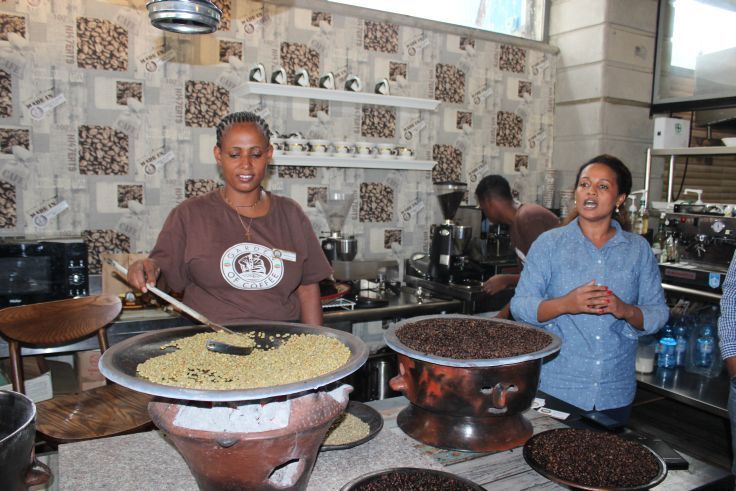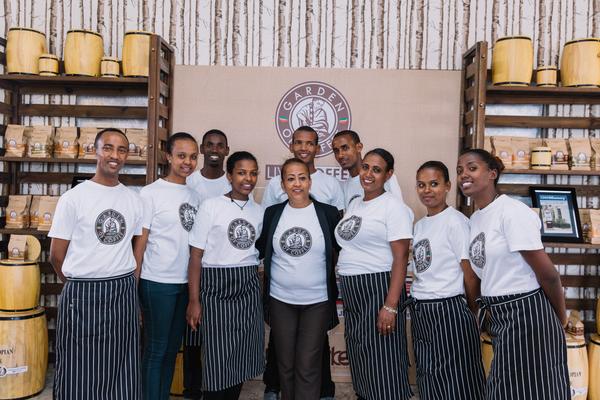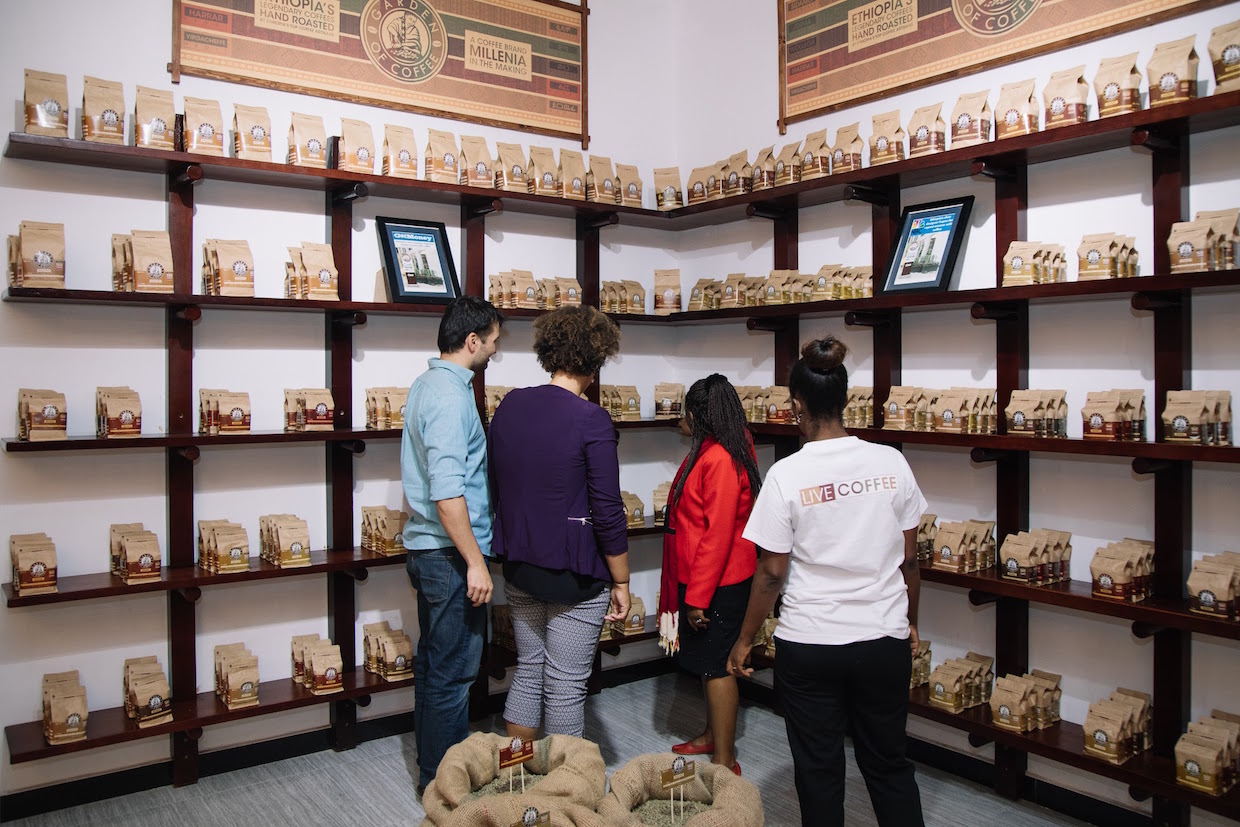Entrepreneur Bethlehem Tilahun Alemu is on a mission, to encourage consumers around the world to taste hand-roasted Ethiopian coffee. Her company, Garden of Coffee, produces a brand that uses artisanal methods to source, process, roast, and package Ethiopia’s legendary beans. This month sees the brand venturing into an exciting and potentially vast new market, China, traditionally a tea loving market but one whose taste buds are now developing a love for coffee.
Bethlehem Tilahun Alemu
Bethlehem’s team of twenty workers at the Garden of Coffee atelier in Addis Ababa currently oversee the roasting of five types of coffee beans for individual orders and shipping them to over 20 countries including Russia, Sweden, Germany, and the United States. This personalized roasting, Bethlehem says, helps preserve the quality of the coffee for the final customer, reduces the ecological footprint associated with factory roasting, and creates a business model that values local manufacturing. This is especially vital as Ethiopia takes crucial steps in improving governance and accelerating poverty reduction and economic growth through job creation.
Widely acknowledged as the birthplace of coffee, Ethiopia is one of the world’s largest coffee bean producers and Africa’s top grower of the plant. Coffee also has a hugely ceremonial relevance in the country, brewed using crafting techniques passed down from generations over centuries, and enjoyed in elaborate ceremonies for all occasions.
Bethlehem now wants to encourage coffee lovers around the world to enjoy these experiences and is now venturing out of Ethiopia with her Garden of Coffee brand. Starting with China, she has embarked on a deal with Suzhou Reyto trading company, which will see Garden of Coffee shipping 12 tons of hand-roasted coffee to China in the first year. Her big plan is to open over 100 café roasteries across China by 2022. Through a subscription service, customers will also be able to receive their favorite coffee of choice in one, two, or four-week intervals.
By embracing traditional Ethiopian roasting methods and taking them globally, Bethlehem says she hopes to shape the “fourth wave” that is defining coffee’s evolution. The first wave involved the mass drinking of the brew, the second grew with the rise of a coffee culture through brands like Starbucks, while the third focused on artisanal coffee making. The fourth wave now focuses less on commercialization, more on long-term sustainability, besides promoting and preserving local ways of farming. Placing Ethiopian coffee at the heart of this movement is only pragmatic, argues Bethlehem.
“We are doing this not only because hand-roasting coffee is an ancient art that we strongly feel is worth preserving and promoting, but because we believe this method of coffee roasting is the key to unlocking Ethiopian coffee’s true magical tastes,” Alemu tells Quartz. “That’s the critical distinction.”
Find out more about Garden of Coffee by visiting the website www.gardenofcoffee.com











